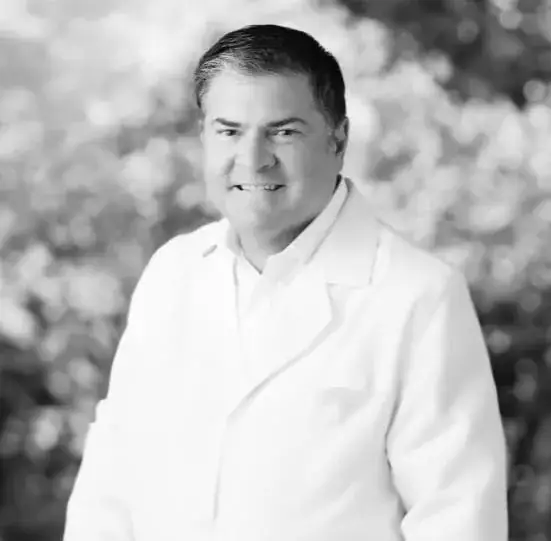Research suggests that most people experience a traumatic event at some point in their lives. This staggering statistic showcases just how prevalent trauma is. Unfortunately, many people do not address their trauma. Left untreated, trauma can interfere with your physical, mental, and emotional health and well-being, as well as negatively impact your relationships for the worse. In this article, you’ll learn more about trauma, and hidden effects of trauma in relationships that can interfere with your relationships with loved ones.
At Tikvah Lake, we are a top-rated luxury rehab committed to helping patients safely and effectively achieve long-term sobriety. Gone are the days of suffering alone with your addiction. Our compassionate team at our drug rehab is here to help you break free from the chains of addiction once and for all so you can lead a healthier life. Contact us today to learn more about how we can best support your recovery journey.
3 Hidden Effects of Trauma in Relationships
Unresolved trauma can hurt not only your own quality of life, but impact your relationships with others. Keep reading to learn more about the 3 hidden effects of trauma in relationships you need to know about, especially if you or someone you know is struggling with unresolved trauma.
Issues Trusting Others
First, individuals who have untreated trauma struggle to trust others. This is especially true if the trauma from their past involved a breach of trust from someone close to them in their past. It’s critical to understand that there is a wide range of traumatic experiences one could experience. And, unfortunately, some individuals experience trauma during their upbringing that can stay with them into adulthood.
For example, if someone was abandoned by their parent or guardian growing up, this can inevitably be traumatic and put an individual at an increased risk of not being able to trust others. This is because it reinforces to that individual that when they put their trust and safety in someone else, and that trust is broken, they cannot trust others.

Increased Risk of Arguments
Another way in which trauma can present itself in relationships is through an increased risk of arguments. Although healthy disagreements are normal and common, if you find you are repeatedly having arguments with others, and these arguments are specifically around you being distrusting of others (even though you are in healthy, trusting relationships), this may be another sign that you may be struggling with trauma.
This is because oftentimes those who have untreated trauma from their past may be on high alert. In other words, if they feel like they are not in control of a situation in that they need to put their trust in another person, rather than trusting that individual, they may have a high emotional reaction. This causes an argument with those close to you.
Unknowingly Distancing Yourself from Others
Finally, if you find you have a hard time getting close to others, or you are unknowingly distancing yourself from your relationships, these are more hidden effects of trauma in relationships. Unfortunately, some people choose to distance themselves from others entirely, rather than having to risk putting trust in others when it comes to forming and maintaining healthy relationships.
Help Is Available
Now you know more about the hidden effects of trauma in relationships. Unresolved trauma can linger for years and hurt not only your own health and well-being, but it can also hurt those around you for the worse. This is why it’s critical that if you are struggling with unresolved trauma or another mental health condition, you seek professional support to effectively heal for the better.
At Tikvah Lake, we understand each patient’s road to recovery is unique. This is why we provide a comprehensive range of addiction treatment options to ensure you receive the right care for your recovery needs. Whether you are struggling with a substance use disorder or mental illness, we are here to help you effectively lead a healthier life. Ready to start your recovery journey? Contact us today!
Frequently Asked Questions
How does my past trauma affect my relationship?
Everyone experiences and reacts to past trauma differently. In other words, how one person reacts to their trauma and impacts their relationships is going to be different than another person’s reaction. However, if you have past trauma that is unresolved, it will likely have a negative impact on your relationships. Not only will you struggle to form and maintain close, meaningful connections with others, but you may struggle to be able to put your full trust in others, even if they have shown you that they are a trustworthy individual.
What are the symptoms of emotional trauma in adults?
There are several signs and symptoms of emotional trauma in adults. This includes experiencing anxiety, depression, mood swings, intense anger, feeling detached from your life, having a hard time focusing, and more. Emotional trauma can keep you not only living a healthy life physically, mentally, and emotionally, but it can also hurt your relationships as detailed in the above article. This is why it’s critical if you suspect you may be struggling with unresolved trauma that you seek professional help so you can effectively address the source of your trauma.
How to help your partner heal from trauma?
If you suspect your partner or loved one is struggling with unresolved trauma, there are several ways in which you can help support them. It’s critical to be patient with them. It is not your role or responsibility to help your partner heal from their trauma. While you can be present with them and foster a safe, trusting relationship, you cannot heal their trauma for them.
Therefore, consider encouraging your partner to seek professional help if you suspect they may be struggling with untreated trauma. Mental health professionals will be able to provide your partner with the tailored support they need to effectively address the source of your trauma. You should never feel like you are solely responsible for helping your partner heal from their trauma all on your own.
Can two people with trauma be in a relationship?
Yes, two people with trauma can be in a relationship. However, it’s important to understand that this can make the relationship more challenging. While you may be able to better understand each other’s trauma, especially if you experienced similar past trauma, this can also make certain aspects of the relationship difficult. For example, you may both struggle with conflict and the ability to trust one another. You may also find you struggle to set or keep boundaries in your relationship.



